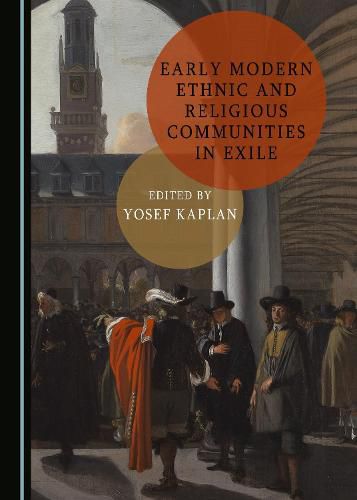Readings Newsletter
Become a Readings Member to make your shopping experience even easier.
Sign in or sign up for free!
You’re not far away from qualifying for FREE standard shipping within Australia
You’ve qualified for FREE standard shipping within Australia
The cart is loading…






In the Early Modern period, the religious refugee became a constant presence in the European landscape, a presence which was felt, in the wake of processes of globalization, on other continents as well. During the religious wars, which raged in Europe at the time of the Reformation, and as a result of the persecution of religious minorities, hundreds of thousands of men and women were forced to go into exile and to restore their lives in new settings. In this collection of articles, an international group of historians focus on several of the significant groups of minorities who were driven into exile from the sixteenth to the eighteenth centuries. The contributions here discuss a broad range of topics, including the ways in which these communities of belief retained their identity in foreign climes, the religious meaning they accorded to the experience of exile, and the connection between ethnic attachment and religious belief, among others.
$9.00 standard shipping within Australia
FREE standard shipping within Australia for orders over $100.00
Express & International shipping calculated at checkout
In the Early Modern period, the religious refugee became a constant presence in the European landscape, a presence which was felt, in the wake of processes of globalization, on other continents as well. During the religious wars, which raged in Europe at the time of the Reformation, and as a result of the persecution of religious minorities, hundreds of thousands of men and women were forced to go into exile and to restore their lives in new settings. In this collection of articles, an international group of historians focus on several of the significant groups of minorities who were driven into exile from the sixteenth to the eighteenth centuries. The contributions here discuss a broad range of topics, including the ways in which these communities of belief retained their identity in foreign climes, the religious meaning they accorded to the experience of exile, and the connection between ethnic attachment and religious belief, among others.